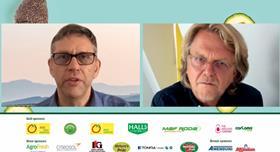
There are bountiful opportunities to increase sales of avocados for suppliers that continue to invest in their businesses, the environment and social enterprise.
That was the key takeaway at this week’s Global Avocado Congress, which attracted some 1,400 people from 74 countries to discuss the big issues and opportunities facing the sector.
In a special section focused on the European market, Europanel’s Davide Perotto noted that avocado sales had enjoyed impressive growth during the course of the pandemic, with over 11m new shoppers and €183m of incremental growth across the continent in the last year. Bucking the trend seen in other categories, avocados actually saw an increase in purchase frequency as locked-down consumers developed new habits and consumption occasions.
France and Spain are the most developed European markets for avocados, with the UK and Germany showing great potential as markets where consumption is high but avos are still regarded as somewhat niche. This offers opportunity to drive purchase frequency with a focus on large and ripe products, Perotto said. The Czech Republic and Slovakia are also gaining notable numbers of new shoppers.
Perotto stressed that despite the inevitable recession post-Covid, there is likely to be further growth in food sales and that makes it a critical time for suppliers to continue to invest for long-term growth. Those that don’t could fall behind.
South America leads the way
The growth comes at a time of change in the supplier makeup. Michele Dall’Olio from Fresh4cast pointed out that back in 2000, South American sources had just a 1 per cent share of the European avocado market, but that had leapt up to 43 per cent by 2020 as the continent gained share from European, African and Asian suppliers. Peru (29 per cent) is now the biggest volume supplier into the European market, followed by Spain (13 per cent), Mexico (9 per cent), Colombia and Chile (both 8 per cent).
While that mix of sources offers greater opportunities to retailers, that comes with a degree of extra social responsibility, cautioned Stephan Weist, fresh produce category director at Rewe Group. “We are looking at sustainability from a different angle now,” he said. “More and more consumers care about how the fruit has been grown and transported and we have to find answers and be aware of what we are doing. Previously we just had to look at Israel, Kenya and Spain, but today [the number of source countries] is very wide. So obviously the challenge in terms of social compliance grows.”
Rewe has already removed packaging from all of its avocado SKUs – with the exception of a net around a home-ripened line – and the retailer is monitoring water use, social responsibility and more. However, Weist did have a dig at the fact avocado has “become the antichrist for water warriors” when there could be much more focus on the coffee, meat or beer industries’ water usage rather than a product that is healthy and also important for vegans.
Sustainable future
The sustainability theme was picked up by Alk Brand, chief executive of major supplier Westfalia Fruit. Expressing optimism for the future of the industry, Brand added that it was time for “new thinking”. “I really believe that we need to do things a bit differently,” he explained. “Firstly we need to put the consumer first – we need to delight our consumers and our customers, give a great taste experience and superb quality and be innovative and exciting.
“Then there’s sustainability. Responsible custodianship of our environment is a key principle for any industry to survive and grow. We need to look after our water resources, we need to be removing plastics out of our processes, we need to reduce our carbon emissions, and I think we really need to look after our communities and keep ourselves accountable to our standards.
“I argue that not everyone will be equally successful in doing avocado distribution in the future, but only those who treat the planet and its stakeholders with the required respect. Then we will see very interesting growth opportunities.”
Stressing that Westfalia has signed up to the UN’s 17 Sustainable Development Goals and has a roadmap to become carbon neutral, Brand predicted a shakeup in the market. “Only good, solid, responsible and ethically focused suppliers who are serious and honest about the environment and sustainability will prosper. Companies that don't have authentic and strong sustainability track records and do not prioritise the development of communities will not prosper in the long run. We all need a fanatical focus on quality and food safety and we need to fight hard to have the trust of our customers and our consumers.”



